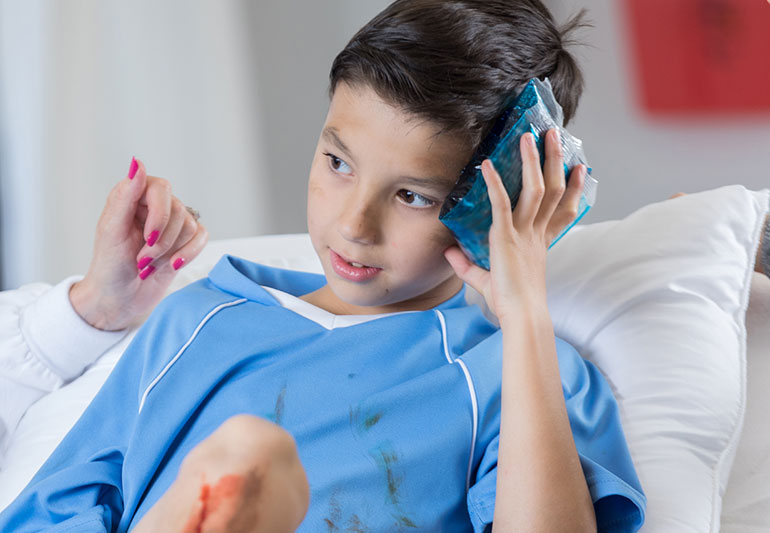A concussion is an injury or a blow to the head that causes damage to the brain. It can happen in sports, from a fall or an auto accident. They can also result from repetitive trauma, such as banging your head against a wall or prolonged exposure to stress or anxiety. Doctors at Spine Center Atlanta can diagnose concussions with a simple physical examination and some basic tests.
Concussions are classified based on Glasgow Coma Scale (GCS), or symptomatology.
Mild Concussion
A mild concussion is the least severe form of head injury. It occurs when you suffer a blow to the head. It includes symptoms like dizziness, confusion, or memory loss caused by a blow to the head. Doctors can treat mild concussions with rest, ice packs, and over-the-counter painkillers such as aspirin or ibuprofen. If you cannot return to regular activity after rest, seek medical attention.
Moderate concussion
A moderate concussion is characterized by symptoms lasting longer than 24 hours, including loss of consciousness, amnesia for events immediately before or after the injury, impaired memory for facts and circumstances immediately before or after the injury, impaired coordination or balance, and hallucinations or delirium.
Severe concussion
A severe concussion is characterized by symptoms lasting longer than seven days. The symptoms include loss of consciousness, amnesia, impaired memory of facts and events immediately before or after the injury, impaired coordination or balance, hallucinations, or delirium.
Physical (somatic) type concussion
A physical (somatic) concussion occurs when the brain moves quickly back and forth inside the skull and causes an injury to the white matter. That can happen when you fall or get into a car accident. It can also occur when you hit your head during sports.
You may experience such symptoms as blurred vision, headaches, memory loss, irritability, depression, dizziness, and nausea.
Cognitive type concussion
Cognitive-type concussions occur when brain function disrupts due to repetitive trauma to the head. It can cause short-term memory and concentration problems, confusion and difficulty focusing, headaches, irritability, and depression.
Concussion symptoms are often worse in the morning and improve with rest. You may have difficulty concentrating or remembering things after you have been hit or fallen. You will also experience mood swings, such as feeling very low or irritable for no apparent reason. You may feel dizzy or lightheaded if you stand up too quickly after being knocked unconscious.
Emotional (affective) type concussion
It is easy to overlook an emotional (affective) concussion because you may not experience any loss of consciousness or amnesia. You are aware that something is wrong but cannot explain it. Emotional concussions typically result from emotional events such as anger, fear, sadness, frustration, or shock. When suffering from this type of concussion, you may feel like you have lost your mind. You may also appear confused and disoriented for several days after the trauma.
Treatment depends on the type of concussion and whether there are associated injuries. A brief period of rest may help with headaches and confusion. Medications such as acetaminophen or ibuprofen may help ease pain and reduce inflammation after a concussion. If symptoms persist or do not improve within two weeks, you should see a specialist for further evaluation and treatment recommendations. Contact Spine Center Atlanta and book an appointment with a doctor to learn more about concussions.





